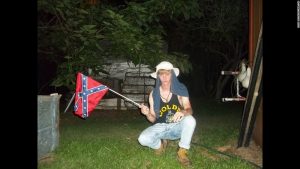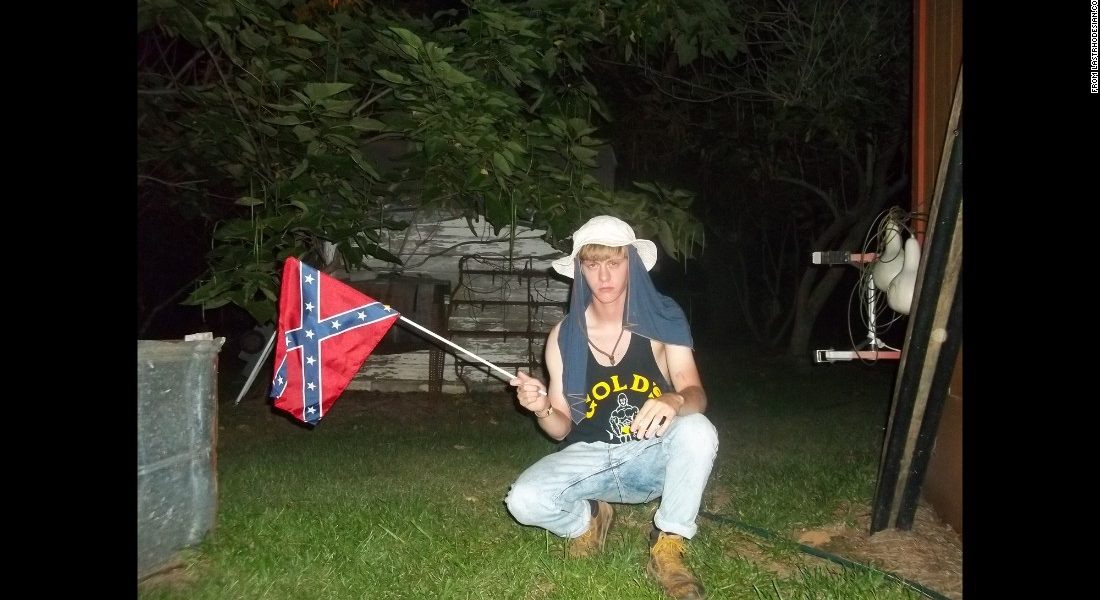
Ferguson, Missouri. New York. Walter Scott. The racial upheaval resulting from these killings have dominated the news for much of the past nine months.
But the Charleston massacre last week may have been a tipping point, ripping a large piece of the scab off the racial wound of this country, exposing the infection that keeps healing from occurring.
Charleston was different than the other three incidents: it was civilian killing instead of a police shooting. A twenty-one year wanted to start a race war, ironically with the very race from which many of his friends are a member.
The other three killings were police incidents, which provides some with an defense. They happened in the line of duty to people who had committed a crime or who were thought to have committed a crime. Thus, they had an “out” for the shootings could be classified as justifiable based on the situation.
But not Charleston. Charleston affected everyone.
I was raised in the South, in the same city where the Scottsboro Boys made national headlines in the early 1900’s. I pastored a church in Louisiana, where I heard the N-word more than I can ever remember hearing in the city where I grew up. I was told there that “I don’t believe blacks and whites should worship together,” and that “my momma taught me from the Bible that blacks and whites are not to be in church together.” I didn’t stay long.
I was once contacted by a church in Southern Mississippi about their vacant pastor position.They told me they were “the last bastion of white supremacy in [their] county.” I told them they probably wouldn’t like me then.
I know racism is still alive and well in parts of the country. And Charleston exposed that in its fullest.
Here’s why Charleston may be a tipping point in the racism discussion
1. It happened in a church. After a prayer meeting. This didn’t happen during a riot or the commission of a crime, but after a prayer meeting where the shooter almost decided not to go through with it because of how well he was treated in the church. And despite the attitude many have about “the church,” there is a sacredness and respect that still exists for the spiritual and for prayer that made these victims martyrs in the eyes of many.
2. It was done by a kid, a 21 year-old. If racism was not an issue in this country any more, then a 21 year-old wouldn’t be filled with so much hate towards a specific race. He had to learn that hate from someone, whether it was someone he knew or through someone’s words. Something that should be stamped out by now is still very real. And while it may not be as prevalent as it used to, it still exists. This killing by a 21 year-old exposed again what many hoped had quietly gone away.
3. It has a symbol – the Confederate Flag. And I believe this is the most important reason I think Charleston may have been a tipping point. Something can be done about a flag. It can be removed or burned. There is something specific that people can fight against. We can’t legislate heart change but we can remove the symbols of that belief system. Sure, taking down the flag will not guarantee that we will all just get along. But there’s something about a symbol coming down that allows for healing and the feeling of closure. The Berlin Wall coming down didn’t end oppression or Communism in the world. But it did end it for those who were experiencing it.
A change in a person’s belief system can’t be legislated, and taking down the Confederate Flag will not end the racism that still exists. But for those who see it as a reminder of the pain their family members when through and for whom it is a symbol of oppression and pain, bringing down the flag offers a sense of relief.
Racism will continue to be with us, just like the poor will. We still live in a broken world and evil is still very real. But Charleston has brought together so many disparate groups – the church, political leaders, and races – that I believe another huge step in the breakdown of the racial divide has been made.
Deep change always requires death on some level. Unfortunately, nine people died. Hopefully, their deaths will not be in vain.



